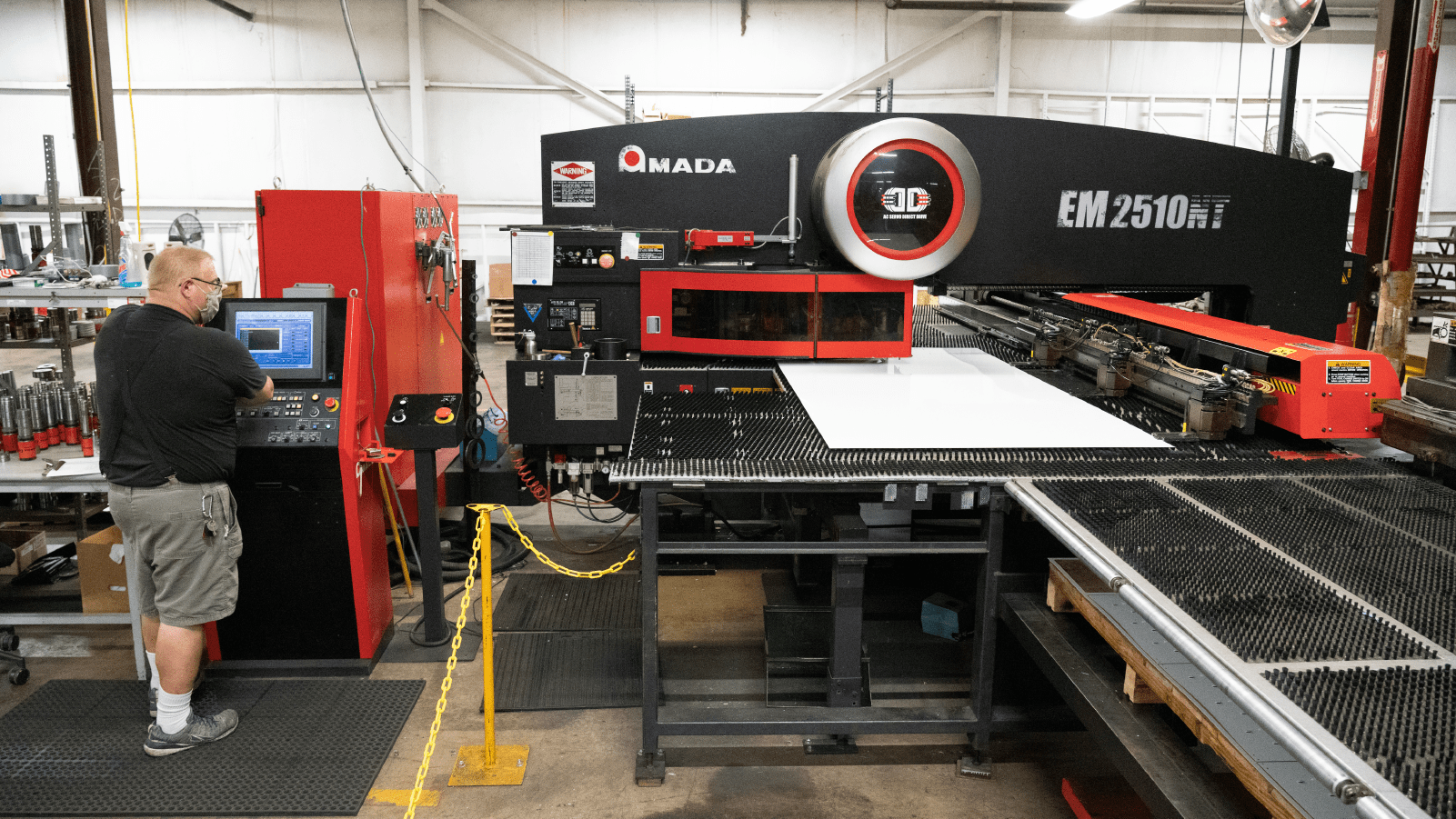Timmons: Immigrants Fill Critical Roles Across Manufacturing

Manufacturing needs skilled workers to innovate in the United States and compete globally—and immigrants fill a variety of critical roles. For this and many other reasons, the NAM has been a longtime advocate of bipartisan, sensible immigration reform.
NAM President and CEO Jay Timmons reinforced manufacturers’ commitment to immigration yesterday at a panel event hosted by the National Immigration Forum, which was moderated by Axios reporter Stef Kight and also featured Tyson Foods Chief Sustainability Officer John R. Tyson. Here’s what he said.
The skills gap: Immigration is crucial to many sectors in manufacturing, Timmons stressed.
- “High-skilled immigration professionals fill critical roles across the country,” he said. “You think about researchers and scientists and technicians. Workers for these roles are in very high demand, and H1-B visas and employment-based immigration are one way manufacturers fill these immediate needs while we work to strengthen our domestic talent pipeline.”
And the pandemic hasn’t changed things—this is a long-term skills shortage that will continue even after the industry bounces back completely.
- “Even though manufacturers lost 1.3 million jobs during the pandemic—we’ve filled back about half of those—we still have 460,000 jobs that we can’t fill,” said Timmons. “Legal immigration programs are absolutely critical for that workforce development, and to allow manufacturers to grow their operations in the United States, and also expand their global footprint.”
The ecosystem: Immigrants aren’t just important for manufacturing jobs; they’re also critical for the support jobs that make manufacturing work.
- “Our employers know that our economy depends on immigrants in a multitude of support functions to enable our economy to succeed,” said Timmons. “Think of an ecosystem of educators and childcare providers, health care workers, transportation professionals, agricultural workers and countless others. They enable our sector, and they enable our economy, and they enable our country to function.”
The NAM’s plan: The NAM has long called for commonsense immigration reform, which includes creating an employment-based immigration system that prioritizes America’s workforce needs. Its comprehensive immigration plan can be found in the policy blueprint “A Way Forward.”
You can watch the full event here.
